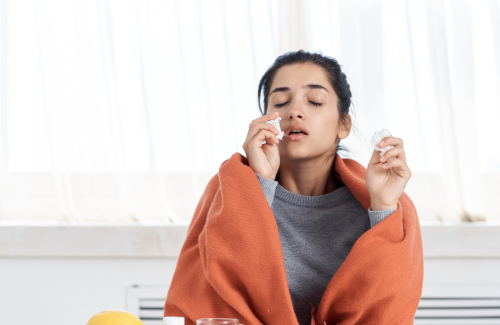Vaccinations for Respiratory Viruses Prevention
Immunizations are a core prevention strategy to lower risk from respiratory viruses by helping prepare your body to defend itself from viruses and severe illness. Stay up to date with your COVID-19, flu and RSV vaccines! Please check with your primary healthcare provider or pharmacist for vaccine availbility.
UPDATES:
-
On June 27, 2024, the CDC Director adopted the ACIP’s recommendations for use of 2024–2025 COVID-19 vaccines in people ages 6 months and older as approved or authorized by FDA. The 2024–2025 vaccines are expected to be available in fall 2024.
-
COVID-19 vaccines at the Shasta County Public Health Immunization Clinic are currently available for our BAP eligible and Vaccine for Children (VFC) clients only.
What can I do to protect myself and others?
-
Stay up to date with immunizations.
-
Practice good hygiene (practices that improve cleanliness: wash and sanitize hands, cover cough/sneeze and cleaning frequently touched surfaces).
-
Take steps for cleaner air.
-
Mask up for additional protection especially if you belong in the high risk groups or have a loved one that is in the high risk groups.
-
Physical Distancing by avoiding being near someone who has respiratory virus symptoms and avoiding crowded areas where you may be unable to maintain physical distance.
-
Testing for respiratory viruses can help you decide what to do next, like getting treatment to reduce your risk of severe illness and taking steps to lower your chances of spreading a virus to others.
What are the vaccine recommendations for COVID-19?
-
Visit CDC's: Staying Up to Date with COVID-19 Vaccines for more information.
-
CDC recommends the 2023–2024 updated COVID-19 vaccines—Pfizer-BioNTech, Moderna, or Novavax—to protect against serious illness from COVID-19.
-
Everyone aged 5 years and older should get 1 dose of an updated COVID-19 vaccine to protect against serious illness from COVID-19.
-
Children aged 6 months–4 years may need multiple doses of COVID-19 vaccines to be up to date, including at least 1 dose of updated COVID-19 vaccine.
-
People who are moderately or severely immunocompromised may get additional doses of updated COVID-19 vaccine.
-
People aged 65 years and older who received 1 dose of any updated 2023-2024 COVID-19 vaccine (Pfizer-BioNTech, Moderna or Novavax) should receive 1 additional dose of an updated COVID-19 vaccine at least 4 months after the previous updated dose.
-
COVID-19 vaccine recommendations will be updated as needed.
What are the vaccine recommendations for the flu vaccine?
-
Everyone 6 months and older should get a flu vaccine every season with rare exceptions.
-
Different influenza vaccines are approved for different age groups.
-
Visit CDC's: Who Needs a Flu Vaccine for more information.
Which groups are eligible to get the RSV vaccine?
-
Vaccines are recommended to protect adults aged 60 years and older from severe RSV.
-
There are two immunizations recommended to protect infants and young children from severe RSV: a maternal RSV vaccine (Pfizer's ABRYSVO) given during pregnancy or an RSV antibody given to infants after birth.
What are the vaccine recommendations for the RSV vaccine for older adults?
- CDC recommends RSV vaccines for all adults ages 75 years and older, and for adults ages 60–74 years who are at increased risk of severe RSV.
-
RSV vaccine is given as a single dose.
-
RSV vaccine is not currently an annual vaccine, meaning people do not need to get a dose every RSV season. If you have already received an RSV vaccine, you do not need another dose at this time.
-
If you have a moderate or severe illness, you should wait until you recover before receiving an RSV vaccine. If you have a minor illness, such as a cold, you can get an RSV vaccine.
- Visit CDC's: Vaccines for Adults Ages 60 and Over for more information.
What are the vaccine recommendations for the maternal RSV vaccine?
-
An RSV antibody (nirsevimab) is available for babies and some young children to protect them from severe RSV.
-
All infants younger than 8 months of age born during RSV season or entering their first RSV season. Except in rare circumstances, most infants younger than 8 months of age do not need nirsevimab if they were born 14 or more days after their mother got an RSV vaccine.
-
Some children ages 8 through 19 months who are at increased risk for severe RSV disease and entering their second RSV season.
-
Visit CDC's: Immunizations to Protect Infants for more information.
What are the vaccine recommendations for the maternal RSV vaccine?
-
People who are 32 through 36 weeks pregnant during September through January should get one dose of maternal RSV vaccine to protect their babies.
-
RSV season can vary around the country. If you live in Alaska, Florida, or outside the continental U.S., talk to your healthcare provider about when RSV season is expected where you live.
-
When someone gets an RSV vaccine, their body responds by making a protein that protects against the virus that causes RSV. The process takes about 2 weeks.
-
When a pregnant person gets an RSV vaccine, their protective proteins (called antibodies) also pass to their baby. So babies who are born at least 2 weeks after their mother gets RSV vaccine are protected at birth, when infants are at the highest risk of severe RSV disease.
-
The vaccine can reduce a baby's risk of being hospitalized from RSV by 57% in the first six months after birth.
-
Visit CDC's: Immunizations to Protect Infants for more information.
Last Updated on: 07/22/2024 | Clinic & Services Unit





